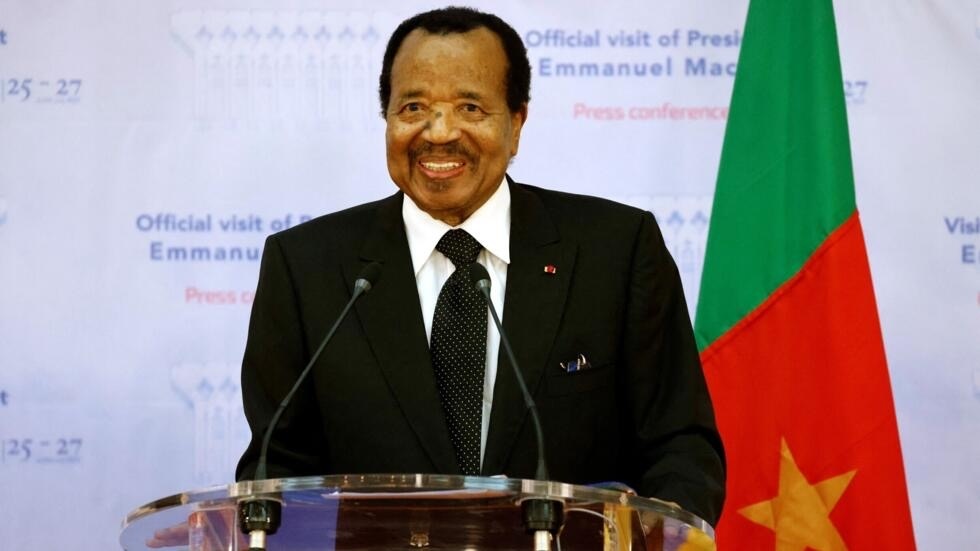
By Comfort Yakubu
The crisis in Cameroon is an ongoing conflict between President Paul Biya and the people of Southern Cameroon. Crisis still persists despite tremendous mediation and international appeal to end the feud
Background:
Cameroon was a German colony “kamerun’with the activities of Germany dating as far back as 1845
At the end of World War l, Germany’s colony of Kamerun was partitioned between France and Britain. The Anglophone region of Cameroon was then controlled by Britain as a mandate of the League of Nations, and then as a United Nations trusts territory while France controlled the region that became the Francophone region of Cameroon.
In February 1961, a referendum organised by the United Nations presented British Cameroons with two options: joining the independent Federation of Nigeria or the independent Republic of Cameroun. Despite Southern Cameroons’ desire for self-determination, the United Nations excluded this option, citing economic concerns. As a result, British Northern Cameroons opted to join Nigeria, while British Southern Cameroons chose to join La République du Cameroun.
The Southern Cameroons thus became one of the two federating states of the Federal Republic of Cameroon. The FoumbanConstitutional Conference was then held to create a constitution for the new Federal state of British Southern Cameroon and La République du Cameroun. The conference brought together representatives from La République du Cameroun, including President Amadou Ahidjo, and representatives from Southern Cameroons.
The Foumban Conference in July 1961 saw negotiations concluded, with the delegation from the Cameroun Republic, aided by French advisers, achieving most of their objectives. However, the Anglophones, lacking the support pledged by the British and the UN, found themselves marginalized.
It was however supposed to be a partnership of equals. By May 1972, Ahidjo converted the Federal Republic into a unitary state, an act that violates articles in the Foumban documents.
Paul Biya, his successor went on to remove one of the stars from the flag and changed the official name of the country to the Republic of Cameroon (La République du Cameroon), replacing the name “United Republic of Cameroon” the name the francophone Cameroon had before her unification with Southern Cameroon.
These actions were perceived by southern Cameroonians as an attempt by the Francophone’s not to form a federal state, but to annex Southern Cameroons. Consequently, English speaking Cameroon over the years suffered marginalisation and weretreated as second class citizens.
The Crises:
By 2016 lawyers led a protest in the Anglophone regions joined by other professionals and the general public. They peacefully protested political and economic marginalisation of the English-speaking regions by government and the imposition of the French language on their schools and courts.
President Paul Biya’s government responded to the nonviolent protest with Cameroonian military firing live ammunition at protesters.
Biya had declared war on the “Anglophones’’ that were calling for separation, He said he would crush them if they did not surrender. Videos were then circulating the social media showing how demonstrators were molested and forced to kneel on the ground by state security agents.
To prevent the circulation of videos internet was cut off from the Anglophone regions for about 3 months. The Consequence of this crisis is that Thousands of people moved to Nigeria and other neighbouring countries in droves because of the attacks by security agents
Sisiku Ayuk Tabe has been a major voice against injustice meted on the Anglophone regions known as “Ambazonia” and advocating for separation from La republic du Cameroun.
In a move that appears to be a deal between Paul Biya and the then Nigerian President, Mohammadu Buhari, Sisiku Ayuk Tabeand nine others which include 6 Academics in Nigerian universities and other professionals were illegally abducted repatriated to Cameroon and subsequently tried in Yaounde by a military tribunal.
They were given life sentence with a fine of 525million Dollars. They are currently being held at Kondengui Maximum Security detention facility. This action has widely been condemned by right groups and the international community who are calling for the release of Cameroonian leaders.
In a letter addressed to the then Nigerian President, Muhammadu Buhari, Femi Falana a human rights lawyer, said the deportees were not illegal immigrants, but Cameroonians who have sought political asylum in Nigeria. He stated that his clients were the leaders of the people of Southern Cameroon who have been living in Nigeria for several years and some are naturalised Nigerian citizens.
According to him, they had sought political asylum in Nigeria due to persecution and repression under the Paul Biya regime in Cameroon. Falana described their extradition as “connivance” between the office of the National Security Adviser and the Cameroonian government.
Their continued detention till date has been widely condemned globally with human rights groups continuously agitating for the release of the 10 Southern Cameroonian leaders being held in detention.









